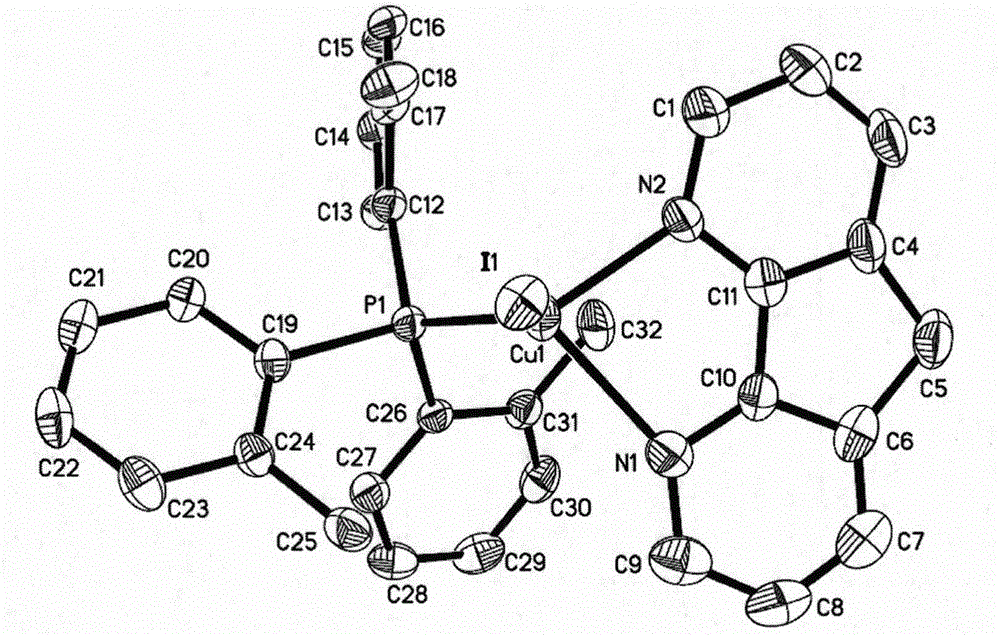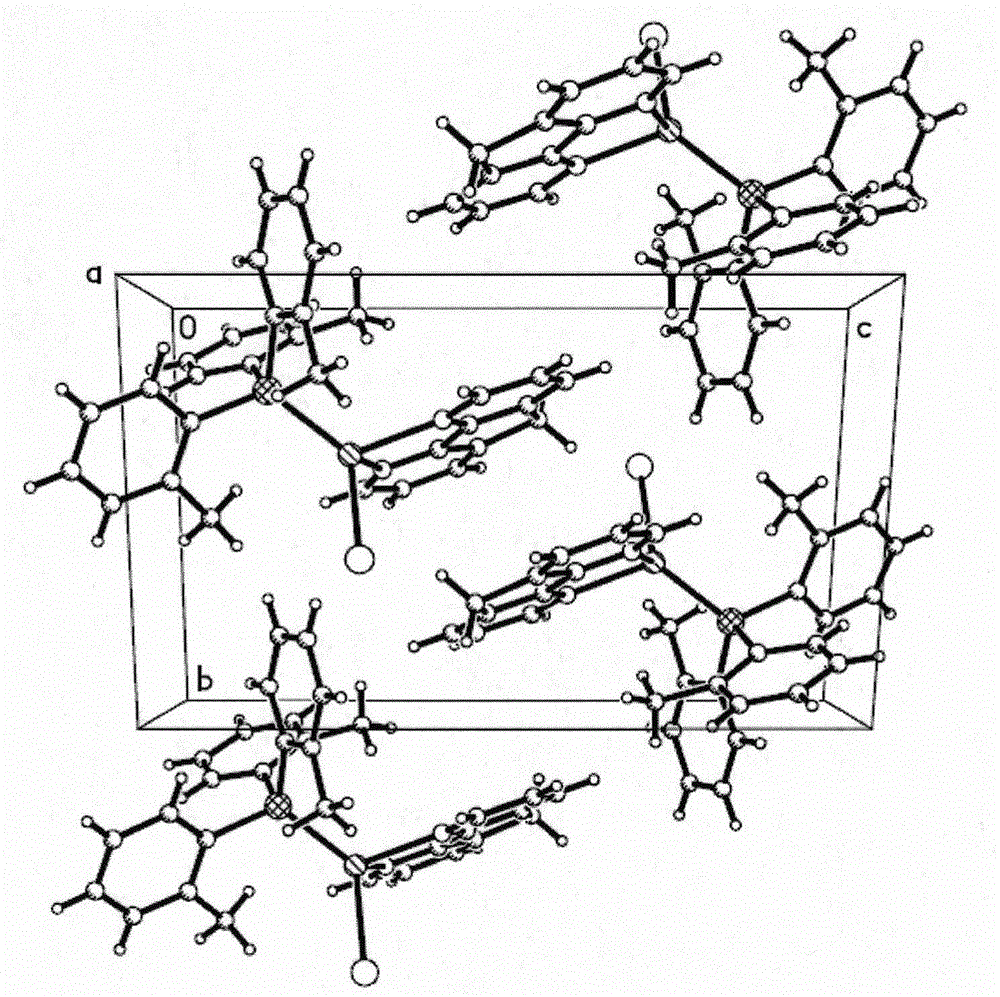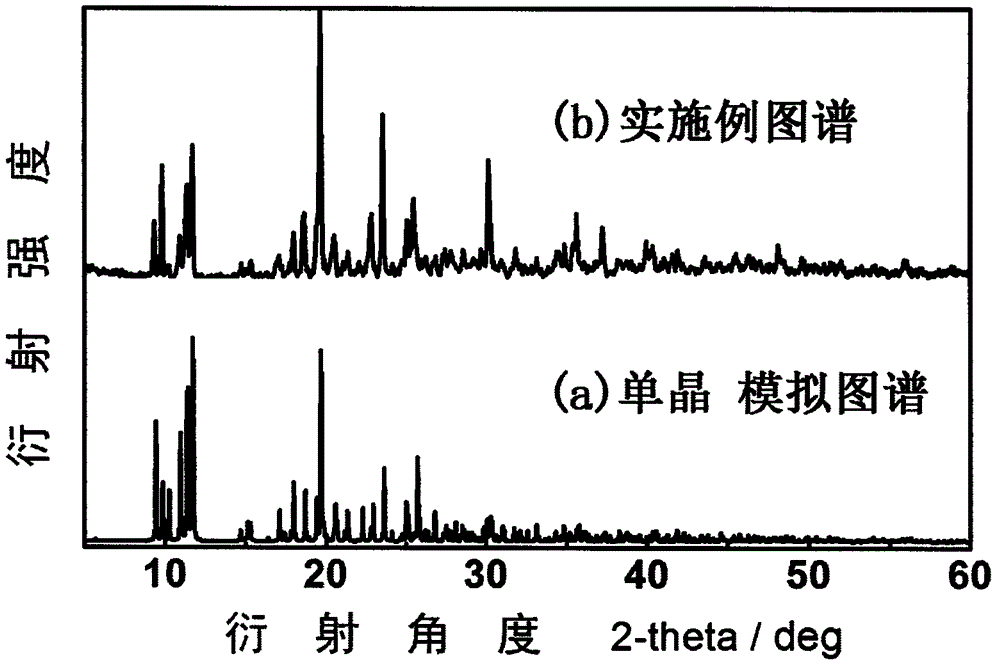New crystal of CuIN2P cuprous complex luminescent material based on azafluorene
A technology of luminescent materials and complexes, which is applied in the field of luminescent materials and organic electroluminescent materials, can solve the problems of unsatisfactory suppression of excited state distortion, luminous efficiency not meeting application requirements, limitations, etc., to achieve good phosphorescence emission performance, The effect of promoting inter-system crossing and simple equipment
- Summary
- Abstract
- Description
- Claims
- Application Information
AI Technical Summary
Problems solved by technology
Method used
Image
Examples
Embodiment 1
[0030] A large number of new crystal forms of phosphorescent complexes CuI(o-Tol 3 P) Preparation of (DAF) microcrystalline samples: Weigh 0.5 mmol of CuI and dissolve it in 25 mL of acetonitrile, weigh 0.5 mmol of tris(2-tolyl)phosphine ligand and dissolve it in 15 mL of ethanol, and mix the two solutions , and stirred to make it fully undergo a coordination reaction to obtain a colorless solution A; then weigh 0.5 mmol of DAF ligand and dissolve it in 15 mL of ethanol, then add this solution to the above solution A, and stir to make it fully undergo a coordination reaction , and finally the obtained yellow reaction solution was rotary evaporated to remove all solvents, and dried in vacuum to obtain an orange granular fine crystal powder as the product, with a yield of 96% (calculated as Cu). Calculated by elemental analysis (C32H29N2PCuI): C, 57.97%; H, 4.41%; N, 4.23%. Experimental values: C, 58.16%; H, 4.41%; N, 4.08%. IR (KBr pellet, cm -1 ): 3441m, 3054m, 3003w, 2946w...
Embodiment 2
[0032] Synthesis of New Phosphorescent Cuprous Complex CuI(o-Tol 3 P) Single crystal of (DAF): Dissolve CuI (0.019 g, 0.1 mmol) in 5 ml of acetonitrile, ligand 4,5-diazafluorene (0.017 g, 0.1 mmol) and tris(2-tolyl) Phosphine (0.030g, 0.1mmol) was dissolved in 5ml of ethanol, after complete dissolution, the two were mixed, stirred for 5min and then filtered to obtain a yellow clear solution. The filtrate was placed in a 25ml beaker, covered with a plastic wrap, pierced with a needle and crystallized by volatilization. After about 2 days, orange blocky crystals were obtained. An orange block transparent crystal with a size of 0.23mm×0.20mm×0.12mm was selected for X-ray single crystal diffraction structure test. The molecular structure of the compound is shown in the attached figure 1 , and its unit cell packing structure is shown in the attached figure 2 .
[0033] On the New Phosphorescent Cuprous Complex CuI(o-Tol 3 A series of performance tests were carried out on pur...
PUM
| Property | Measurement | Unit |
|---|---|---|
| luminous efficiency | aaaaa | aaaaa |
Abstract
Description
Claims
Application Information
 Login to View More
Login to View More - R&D
- Intellectual Property
- Life Sciences
- Materials
- Tech Scout
- Unparalleled Data Quality
- Higher Quality Content
- 60% Fewer Hallucinations
Browse by: Latest US Patents, China's latest patents, Technical Efficacy Thesaurus, Application Domain, Technology Topic, Popular Technical Reports.
© 2025 PatSnap. All rights reserved.Legal|Privacy policy|Modern Slavery Act Transparency Statement|Sitemap|About US| Contact US: help@patsnap.com



